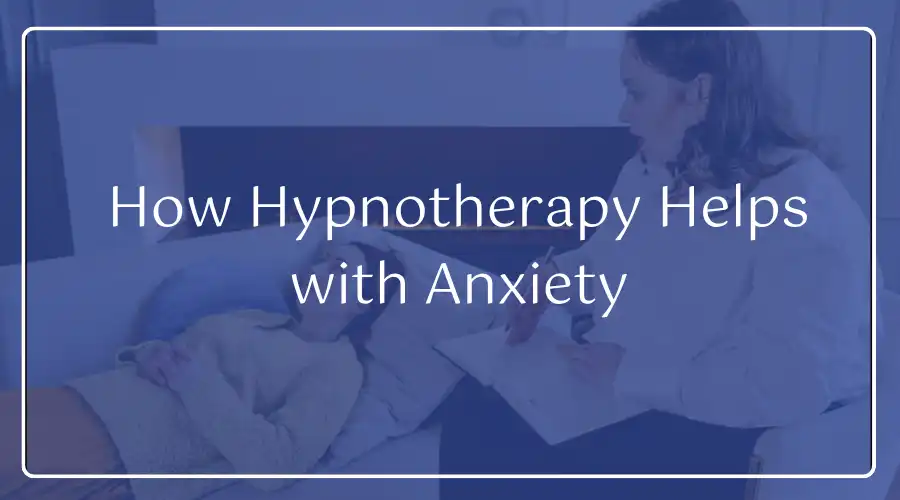- +91 7568470324

How Hypnotherapy Helps with Anxiety

Anxiety has become one of the most common mental health challenges today. From daily stressors to deeper emotional issues, it affects millions of people worldwide. While traditional treatments like therapy and medication are effective, many individuals seek alternative or complementary approaches to manage their anxiety more naturally. One such approach that has gained recognition over the years is hypnotherapy. At Umeed Psychology Clinic, we explore how hypnotherapy can provide relief and help individuals regain control over their emotional wellbeing.
Understanding Anxiety
Before diving into hypnotherapy, it’s important to understand what anxiety is. Anxiety is more than occasional worry or stress. It is a condition where individuals experience persistent feelings of fear, nervousness, or unease, often without a clear cause. Symptoms can include:
- Rapid heartbeat and palpitations
- Shortness of breath
- Difficulty concentrating
- Irritability or restlessness
- Sleep disturbances
- Muscle tension
If left unmanaged, anxiety can interfere with daily life, relationships, and overall health. While therapy and medication remain common treatment options, hypnotherapy offers a unique, non-invasive approach that works directly with the mind to address the root causes of anxiety.
What is Hypnotherapy?
Hypnotherapy is a therapeutic technique that uses guided relaxation and focused attention to achieve a heightened state of awareness, often referred to as a trance. In this state, individuals are more open to positive suggestions, self-reflection, and behavioral changes. Hypnotherapy is not mind control or manipulation, as often portrayed in media; instead, it is a collaborative process between the therapist and the client aimed at promoting mental and emotional wellness.
Hypnotherapy has been used to treat a variety of conditions, including phobias, chronic pain, insomnia, and, importantly, anxiety disorders.
How Hypnotherapy Addresses Anxiety
Identifying Root Causes
One of the key strengths of hypnotherapy is its ability to explore the subconscious mind. Often, anxiety stems from unresolved past experiences, negative thought patterns, or deeply ingrained beliefs. During hypnotherapy sessions, a trained therapist helps individuals access these underlying causes safely. By bringing them to conscious awareness, clients can begin to process and release these triggers, reducing their anxiety over time.
Reprogramming Negative Thought Patterns
Anxiety is often fueled by repetitive negative thinking, catastrophic predictions, and self-doubt. Hypnotherapy works to reframe these thoughts. For example, a person with social anxiety might unconsciously expect rejection or judgment in social situations. Through guided suggestions in a hypnotic state, these negative thought patterns can be replaced with positive affirmations, realistic expectations, and a sense of confidence.
Promoting Deep Relaxation
A major symptom of anxiety is physical tension—tight muscles, shallow breathing, and a racing heart. Hypnotherapy induces deep relaxation, allowing the body and mind to calm down. This relaxation response reduces stress hormones like cortisol, lowers blood pressure, and improves overall emotional regulation. Over time, clients may notice that their body responds less intensely to stress, creating a sense of calm and resilience.
Enhancing Coping Skills
Hypnotherapy equips individuals with practical tools to manage anxiety in real life. For instance, a hypnotherapist may teach visualization techniques, guided imagery, or self-hypnosis practices that clients can use independently. These strategies empower clients to handle stressful situations more effectively, preventing anxiety from escalating.
Boosting Self-Confidence and Self-Esteem
Anxiety often goes hand in hand with low self-esteem and a lack of confidence. Hypnotherapy helps strengthen a positive self-image, encouraging self-acceptance and self-belief. By reinforcing the mind with empowering messages during hypnosis, individuals gradually experience increased confidence, improved decision-making, and reduced fear of failure or judgment.
Scientific Evidence Supporting Hypnotherapy for Anxiety
Several studies have demonstrated the effectiveness of hypnotherapy in managing anxiety. Research shows that hypnotherapy can significantly reduce anxiety symptoms by:
- Lowering physiological arousal (heart rate, blood pressure)
- Decreasing worry and rumination
- Improving coping mechanisms
- Enhancing overall quality of life
While hypnotherapy may not replace conventional treatments entirely, it works particularly well as a complementary therapy, helping individuals achieve faster and more sustainable results.
What to Expect During a Hypnotherapy Session
- At Umeed Psychology Clinic, hypnotherapy sessions are tailored to each client’s unique needs. Here’s what a typical session may look like:
- Initial Consultation – The therapist discusses your history, anxiety triggers, and goals.
- Induction – You are guided into a relaxed, focused state using calming techniques such as deep breathing or visualization.
- Therapeutic Work – The therapist uses suggestions, imagery, or regression techniques to address anxiety triggers and reshape thought patterns.
- Emergence and Reflection – You are gently brought out of the hypnotic state and discuss insights, feelings, and coping strategies.
- Follow-Up – Additional sessions may be scheduled based on progress, along with at-home practices for reinforcement.
Benefits of Hypnotherapy for Anxiety
- Non-invasive and drug-free
- Addresses both physical and emotional symptoms
- Helps in uncovering subconscious causes of anxiety
- Provides long-term coping strategies
- Boosts relaxation, confidence, and emotional resilience
Who Can Benefit from Hypnotherapy?
Hypnotherapy is suitable for a wide range of individuals experiencing anxiety, including:
- Those with generalized anxiety disorder
- Individuals with panic attacks or social anxiety
- People facing stress-related insomnia
- Individuals seeking personal growth and self-improvement
- Anyone looking for a holistic, drug-free approach to mental wellness
However, it’s important to work with a qualified hypnotherapist. At Umeed Psychology Clinic, our trained professionals ensure that hypnotherapy is safe, effective, and personalized for every client.
Complementary Approaches
Hypnotherapy works best when combined with other mental health strategies, such as:
- Cognitive Behavioral Therapy (CBT)
- Mindfulness and meditation practices
- Regular exercise and proper sleep
- Healthy diet and hydration
- Support groups or counseling
Together, these approaches create a holistic treatment plan that addresses anxiety from multiple angles, promoting lasting wellbeing.
Conclusion
Anxiety can feel overwhelming, but it is treatable. Hypnotherapy provides a safe, effective, and holistic way to manage anxiety by addressing the root causes, reprogramming negative thought patterns, and enhancing emotional resilience. At Umeed Psychology Clinic, our experienced hypnotherapists work closely with clients to provide personalized support, helping them regain control over their minds and lives.
If anxiety is affecting your daily life, consider exploring hypnotherapy as a powerful tool for healing. With the right guidance and commitment, you can achieve greater calm, confidence, and emotional balance.